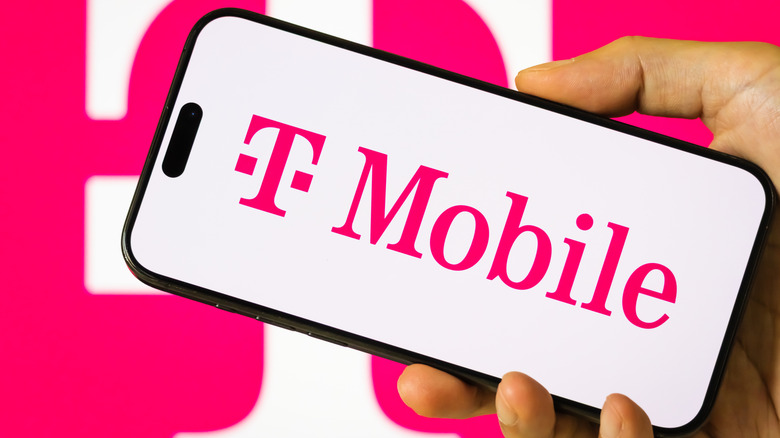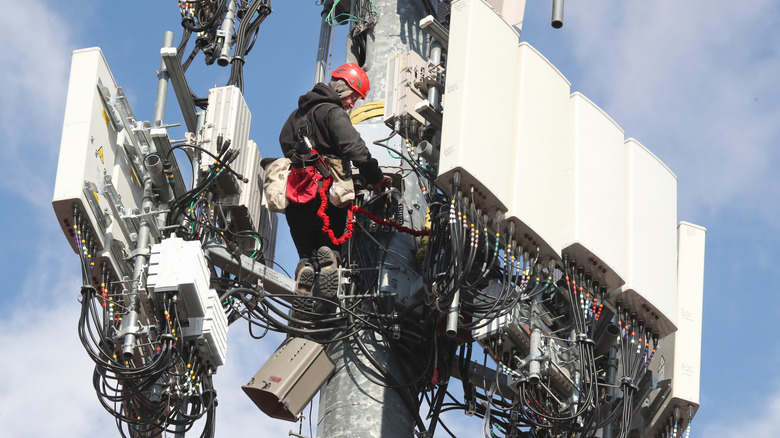Do T-Mobile And Verizon Phones Run On The Same Towers? It's Complicated
If you're thinking of switching your cell phone carrier, you might be considering either T-Mobile or Verizon, two of the largest mobile carriers in the United States. Each company has an array of plans, features, and benefits, all of which could help motivate your decision. Both companies are separate and have individual infrastructures as well, with T-Mobile owning its own 4G and 5G network. They also don't operate using the same cell towers.
However, there is some possible overlap happening in terms of coverage, thanks to T-Mobile's acquisition of customers and towers from U.S. Cellular in May of 2025. Thousands of towers, including those U.S. Cellular owned and some where T-Mobile was previously renting, were part of the deal. This agreement led to improved coverage and 5G speeds for T-Mobile, particularly in some rural areas. Since Verizon is known for its service in rural areas and has worked to improve its own 5G coverage, it may seem as though each company's networks are interacting. However, none of T-Mobile's acquired towers run on Verizon's network.
There are even cases where T-Mobile, which is offering an iPhone 17 deal with a big catch, allows phones from Verizon to access parts of its network. For example, T-Mobile's new T-Satellite emergency texting service allows compatible Verizon phones to text 911. This service works in areas with no cellular coverage, and there's no charge to the user for any texts sent or received.
Cell towers and location
Most cell towers in the United States aren't owned by carriers like Verizon or T-Mobile, which is planning major changes that could leave customers in the lurch. Companies like American Tower, Crown Castle, and SBA Communications control the majority of America's towers. These towers are then leased to providers. This means that both T-Mobile and Verizon can place their equipment on the same tower. However, that doesn't mean the two carriers are affiliated.
A cell tower's physical location can impact how well a mobile carrier's coverage actually works. Towers in urban areas tend to be placed in close proximity to each other, with each one handling possibly thousands of connections. This setup works best for 5G networks like T-Mobile's. But rural areas, which are strong locations for Verizon, have far more space, which means towers are typically further apart. This means T-Mobile can deliver lightning-fast speeds in cities, while Verizon provides more reliable connections over long distances. Even if Verizon's 5G isn't as good as T-Mobile's, the difference may not be that noticeable.
But each cell tower, whether it's used by T-Mobile or Verizon, has an important role, and that role is being redefined thanks to the rise of 5G. 5G signals, while faster, don't travel as far as older 4G signals do. This means that more towers, both traditional and smaller versions, are often needed to maintain reliable service. Fiber connections are being implemented as well to assist the towers in handling higher traffic along the way.

